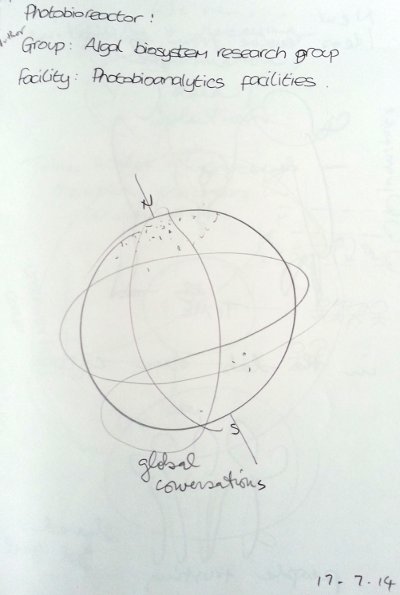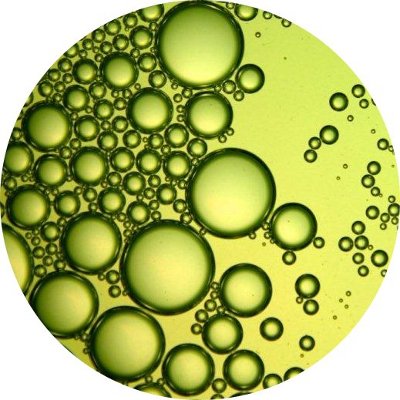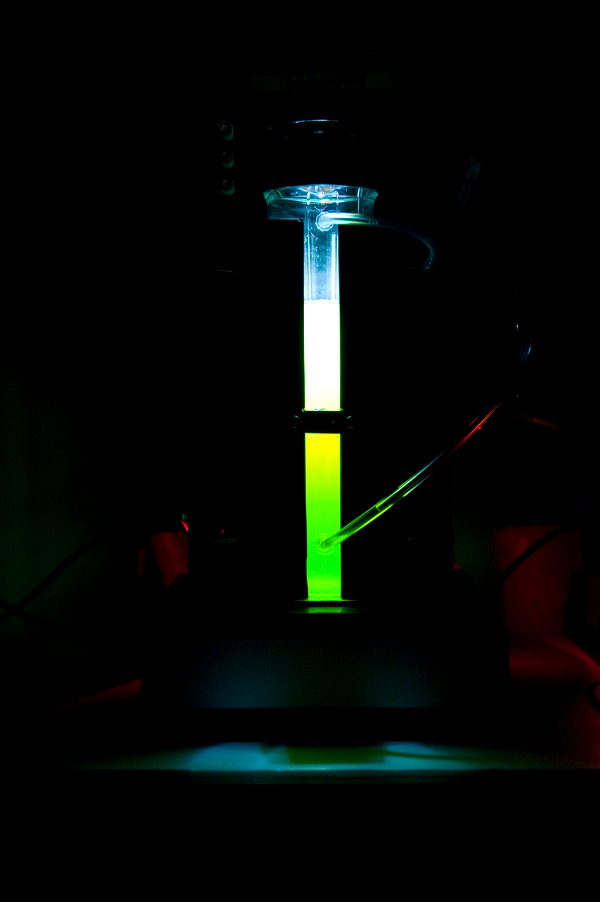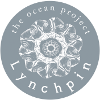Living Data
Evolving conversations 
University of Technology, Sydney Main Entrance Foyer, 3 Sept 2014 - 20 Nov 2014
In Ultimo Science Festival, Sydney3-12 Sept 2014
 Dale Radford collaborates with Supriya Guruprasad, Bojan Tamburic & Martin Schliep, as part of the
UTS C3 Algal Biofuels Group (ABG).
Dale Radford collaborates with Supriya Guruprasad, Bojan Tamburic & Martin Schliep, as part of the
UTS C3 Algal Biofuels Group (ABG).
I draw trees as structures for ideas, for example designing experiments and reflecting on how things work, or to understand a talk... I like to be in the creative zone, in conversations where unexpected insights can emerge and where technical and scientific understandings can be combined.



Dale Radford with Lisa Roberts 2014
Drawing conversation: creative process
Professor Peter Ralph talks with Dr Lisa Roberts at the 2013 Living Data exhibition at the Muse.

Algal fuel living laboratory 2013
UTS C3 Algal Biofuels Group (ABG). Photo: J. Saad
Algal biofuels are being developed at UTS to deliver the sustainable and affordable transport fuels of the future.
Despite global efforts to harness the renewable energy potential of microalgae, low-cost, high-yield and high-efficiency commercial algal biofuel production remains elusive.
Professor Peter RalphC3 Executive Director
The human race is dependent upon crude oil for transport. This exhaustible, environmentally damaging resource has fuelled our current population expansion for over a century, but has left devastating legacy consequences for our climate. Proven oil reserves are now diminishing rapidly and, for the sake of future generations, an alternative sustainable fuel must be found. Biofuels are part of the solution and algae are the most promising source of transport biofuels globally. Algae are tiny marine 'bugs' that use sunlight, seawater and waste carbon dioxide to capture light energy by photosynthesis. This energy is stored in the form of algal oil, which can be processed into petrol and jet fuel. Algae can be grown anywhere in the world and harvested throughout the year. Unlike land-based biofuel crops, such as corn and sugarcane, they do not compete with food crops for agricultural land or fresh water. They also act as a natural sponge that soaks up excess carbon dioxide from the atmosphere. Further research is required to turn algal oil into a commercially viable product.
Here at UTS, we have built a dedicated team of international researchers to investigate algal oil production. We use living laboratories (bioreactors) to discover the best conditions for algal growth, and to encourage algae to produce more oil. Our research aims to advance the development of a sustainable, affordable and available fuel for the future.
Supriya Guruprasad, Dale Radford, Bojan Tamburic & Martin Schliep
UTS C3 Algal Biofuels Group (ABG)











